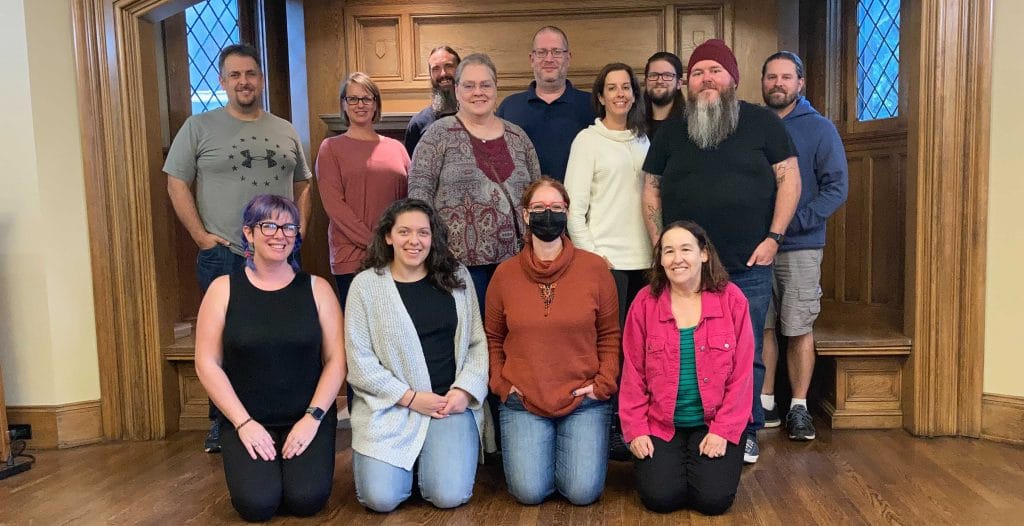A curated collection of the latest and most interesting podcast episodes about the author life.
Hello writers! It’s me again. Life has been on the up side lately. I’ve finally managed to find a place to move and that means I have to pack my house up! What better way to pack than listening to some fun podcasts? Here’s a few that have kept me entertained while I decide what I need and don’t need to move with.
Top 3 Must-Listen Episodes
Revision Wizards // E05 – Interview with Jeff Elkins
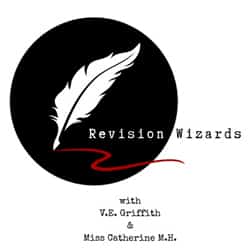
On this episode, V.E. Griffith and Miss Catherine MH have the opportunity to interview Jeff Elkins, the Dialog Doctor, about internal voice and writing/editing process. As always Jeff brought his fun personality to the podcast to liven it up with random questions, mimicking voices, and jokes. Here are the main points to take away and learn about internal dialog.
- When writing fiction, Jeff’s process starts with plotting. Scenes are the important key to plotting. He thinks in scenes and writes in scene chunks. Once he plans out the story, he can start writing. He allows for creative freedom in his drafts in order to let the story breathe, and uses the Three Story Method as a way to make sure things stay on track. When he finishes a scene, he gets up and leaves it be for a few minutes before he comes back to edit it. His drafts are first written as dialog and then on his next passes, he adds the world behind it.
- Jeff and Miss Catherine share the understanding of being dyslexic. Jeff enjoys writing and it further his education in the craft, he reads books. He expanded his understanding of grammar in college. But like many dyslexic people he wanted to through writing out the window because of the rules, the struggle it takes with writing, and the people who bluntly disregard dyslexic writers instead of giving them some pointers. One of his biggest suggestions is to have a trusted reader who will go over your work and look for the things that dyslexic writers miss, homophone words, words written backwards, sentences that are flipped around the verb, and the catching of words that use all the same letters but are 100% different words.
- Inner dialog has been a growing process for Jeff. He didn’t originally know it was a thing until he really started reading and writing himself. Since it was new to him, he strayed away from it in the beginning. He enjoys the exchange of emotion, body language and story that happens between the characters. Jeff has come to the understanding that internal dialog is an exchange of those things between the character and the reader. It’s another way to make it personal to the reader. It shows more character to the readers and is used as a tool, not a crutch, to strengthen story telling.
The Write Away Podcast // Episode 110: Do you pay attention to reader reviews?
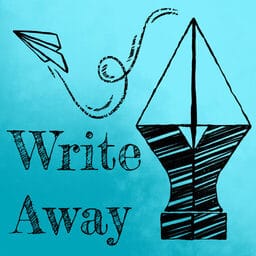
The episode starts out with a great book recommendation “Light from Uncommon Stars.” It’s a sci-fi fantasy book with amazing LGBQT+ characters, love story, strangely compelling plot. With the book recommendation out of the way, JP tells the listeners about his new revelations about his manuscript he is currently working on with the Publish in Six and Crys is plugging away at her writing and checking on the status of her German translated book. All three are in the top 100.
The episode dives into the topic of day: the Tarot Card – The World.
Upright: You have reached the end of your goal that you started as fool and you learned from it, mastered it and can move on.
Reversed: You have reached the end of your goal, but you are to repeat it because you didn’t learn from the lesson.
The World card brings in the question of the week: Do you pay attention to reader reviews? Here are the main take a ways.
- Sometimes readers’ reviews can be really uplifting and motivating.
- Pay attention to negative reviews and see the critiquing not the criticism.
- Sometimes the reviewer will point out something that the author can learn from and become a better writer for the next book.
- Goodreads will have more detailed reviews and will require a thick skin for some writers.
- You can use reviews in your promo when you see phases or words repeated.
- Pay attention to the 3 star reviews.
Writing Roots // S34E3 – When There’s a Buildup Without a Payoff

Ley Esses and Leigh Hull are back at it again. They are back to go over things that might make people put down the book. In this case, they are talking about buildups with no payoff. The main points to take do and don’t:
- It can be really misleading to the reader and pull them from the story as they try to figure out what is important to pay attention to and what is not.
- A false beginning that promises something and then goes a completely different way.
- The reader can be promised something and if it never happens on the page it leaves the readers frustrated and thinking the plot has holes.
- If the reader is expecting something and then sees the character shifting in the story and the expectation isn’t fulfilled because of character growth that can lead to some great storytelling.
- When promising a payoff over a long story or series, make sure to leave bread crumbs to let the reader know you haven’t forgotten about them.
- If the writer isn’t able to do payoffs on a small scale the reader might put things down because you show them that you can’t do it on a large scale.
- For Pantsers, make a note of things that you might need to sprinkle into the story. It can help inspire and keep you from longer edits.
The Latest from The Author Life Podcast
79: HOW DO YOU DECIDE TO NOT CONTINUE WITH A PROJECT?
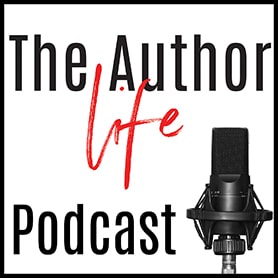
This week authors J. Thorn and Crys Cain discuss how they decide to not continue with a project and the factors influence their decisions.
The Wildcard: Interesting Episode from a Non-Writing Related Show
The Dolls of New Albion, A Steampunk Opera
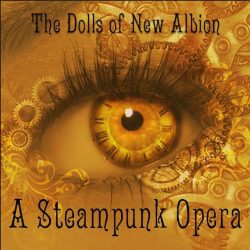
If you’re one for music, singing, and great story telling, then this is an interesting choice. I found this opera back when I was first looking into steampunk. It did not disappoint. As a writer, I like to study things and see what I can learn to better my writing. Here is what this opera taught me:
- Dialog is very important, Jeff Elkins would strongly agree. As you are only listening to people singing their story it needs to be spot on. How people talk and pause can help with one’s own writing.
- The characters are vivid through dialog and sing. It’s easy to picture their moods and see how they feel by what they are saying. The way they are able to sing the descriptions of people give a clear view for the listener to imagine.
- Music can be used to help identify the 3 Cs in writing. You can hear the shift when a conflict arises. The crescendo leads to the choice and the shift in key signifies the consequences.
- If you are looking for how things are explained or the sounds of your genre to better write them, listening to musicals or operas in your genre will really help broaden your mindset. It’s a great tool for world building as it lets your mind see what you can only hear.
So if you are looking for not only an educational listen into story structure and character dialog, then check out The Dolls of New Albion for gut wrenching emotions, defying the laws of life and death, steampunk-fantasy, and a audio representation of the Three Story Method.
Inside The Author Life
Get those gears turning, and get to writing.

Get the APB delivered straight to your inbox!
Need some help with your story?
Three Story Method certified editors are standing by, ready to help you become a better writer. Click on our picture or visit https://theauthorlife.com/editing/ for more details!
Posted in Author Podcast Broadcast

